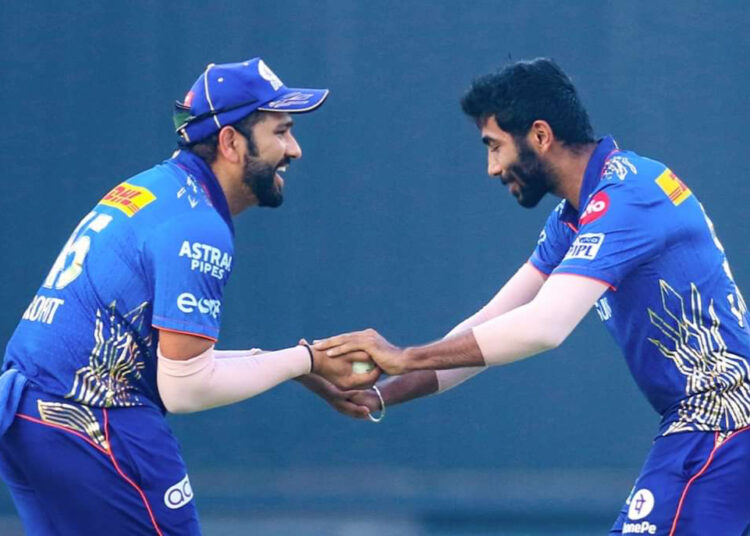Jasprit Bumrah’s retention by Mumbai Indians at a record price would indeed be a landmark moment in IPL history. Given his stature as one of the best fast bowlers in the world and his consistent match-winning performances, it’s no surprise that Mumbai Indians are eager to retain him alongside other key players like Rohit Sharma, Hardik Pandya, and Suryakumar Yadav. Bumrah’s potential retention at a price that could exceed ₹50 crore would not only set a new benchmark for bowlers but also reinforce his value as a critical asset in the T20 format.
Comparisons to Mitchell Starc’s record-breaking price in the 25 crore bracket only highlights how highly Bumrah is rated. His ability to deliver under pressure, especially in crucial moments of the game, justifies such an extraordinary valuation. If this retention goes through as speculated, it would further solidify Mumbai Indians’ dominance in the IPL, ensuring that they have the best possible combination of experienced and impactful players to continue their success in the tournament.
Bumrah’s record-breaking retention would also be a statement about the importance of world-class bowlers in T20 cricket, where match-winning spells are often the difference between victory and defeat. Also, Bumrah’s openness to captaining an IPL side adds an interesting dimension to his future in the league.
As one of the most revered bowlers globally, his potential as a captain could attract significant attention from other franchises. However, his preference to secure a higher financial package through retention or trading rather than entering the auction is a strategic move that reflects broader trends among top Indian players.
Many of these players, including Bumrah, are wary of the salary cap limitations that come with the auction process. By opting for retention or trade, they can negotiate directly with franchises, often resulting in more lucrative deals that wouldn’t be possible within the auction’s constraints. This approach also offers them a level of security and control over their market value, ensuring they don’t risk being undervalued in the auction, which could impact their standing in both the IPL and the Indian national team. The fear of being sold at a lower price during the auction is valid, as it could not only affect a player’s financial earnings but also their perception and role within the national team.
A lower auction price might be interpreted as a decline in form or value, which could influence selection decisions and a player’s overall career trajectory. For Bumrah, his willingness to consider captaincy and explore options outside Mumbai Indians, if it means a better deal, highlights the evolving dynamics of player negotiations in the IPL. It shows the increasing importance of strategic financial management and career planning for top cricketers in a highly competitive environment. If Bumrah were to lead another franchise, it would be a significant move that could reshape the competitive landscape of the IPL.
Negotiating a deal better for Rohit than entering the auction pool: Absolutely, for a player like Rohit, who has potentially stepped away from T20 internationals, being retained or traded before the auction makes strategic sense. Despite his immense contributions and leadership in the IPL, the dynamics of the auction can be unpredictable, especially for players who may not be at the peak of their T20 careers or who have retired from a particular format.
If Rohit were to enter the auction pool, there’s a risk that franchises might not bid as aggressively, especially considering his current focus on formats other than T20Is. This could lead to a lower auction price, which might not reflect his stature, experience, or value as a captain. Such a scenario could have implications not only on his earnings but also on how he is perceived in the cricketing world, especially with respect to his standing in the IPL.
On the other hand, if Rohit is retained by the Mumbai Indians or traded to another franchise before the auction, he can negotiate the terms that align with his market value, reflecting his experience, leadership, and past performances. This approach ensures that he remains among the top earners and continues to be seen as a vital asset in the IPL, irrespective of his international T20 status.
For top players like Rohit, who have established legacies, negotiating a retention or trade deal before the auction provides financial security and helps maintain their prestige within the league. It also allows them to focus on their cricket without the uncertainty that comes with the auction process.

















Your point of view caught my eye and was very interesting. Thanks. I have a question for you.